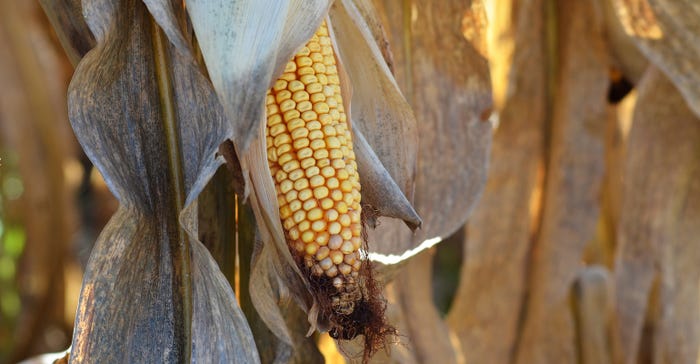
It was the first year since Mark Wieberg started with the MU Variety Testing Program that he planted all northern Missouri corn trials before planting one plot in the southeast region of the state. The culprit: rain.
“That area of southeast Missouri was extremely wet,” recalls Wieberg, a University of Missouri senior research specialist who manages the MU Variety Testing Program. “Planting down there was 30 to 45 days behind the rest of the state. It was an anomaly for us.”
Despite the late start, this region, with its totally irrigated plots, still found a way to produce 300-plus-bushel corn at its Dexter location. Many of the top 10 hybrids this year saw yields averaging about 250 bushels per acre across the entire southeast region.
While a portion of the south had adequate moisture, that was not the case on the opposite side of the state.
Heat affects corn yields
Rain, whether too much or too little, seemed to be the biggest issue in the statewide corn hybrid trials.
Once the rain stopped in southwest Missouri, it didn’t come back. Even one of the irrigated test locations simply ran out of water.
“Our cooperators didn’t have any heavy rains all summer,” Wieberg says. “Our irrigated plots couldn’t irrigate a lot.” The extreme heat also hurt yield.
In the southwest region, nonirrigated corn at the Lamar location struggled with not a single hybrid reaching 100 bushels per acre. The top was 92 bushels per acre, with the bottom at 33 bushels. The brighter spot was Garden City, where the average of all hybrid varieties was at 156.5 bushels per acre, with a high of 180 bushels.
When it comes to irrigated plots in the southwest, Mount Vernon had the lowest corn yield of 94.5 bushels per acre. Garden City posted the highest yield with 250 bushels.
Central region bright spot
It was hit or miss for rain and heat across the state’s midsection during the 2022 growing season. But Wieberg found his dryland corn plots were in the right location to take advantage of both and was surprised by the yields.
The highest yields were in the Norborne location with 258 bushels per acre topping the test. The lowest yields at about 111 bushels per acre came at the Columbia location where it was the driest.
Still, the highest average for the four central Missouri locations was NuTech 70B4AM at 215 bushels per acre.
Northern region corn wins
The northern location at Rock Port was a bright spot for dryland corn, posting the highest individual yield at 304 bushels per acre with NuTech 70B4AM. The hybrid topped the region with an average across five locations of 242.9 bushels.
Rock Port posted the highest total average of all hybrids for the regional test at 260.7 bushels per acre. The lowest overall plot average was from Novelty at 183.6 bushels.
“We were pretty fortunate with our plot locations that we didn’t have any total crop disasters this year,” Wieberg points out. He says farmers should look not only at the 2022 growing season results, but also multiple-year data to make the right corn hybrid choice for their farm.
For a list of the top 10 corn hybrids from MU Variety Testing Program, along with precipitation, click through the above photo gallery.
To look at individual plots and corn hybrids, visit the MU Variety Testing Program website.
About the Author(s)
You May Also Like






